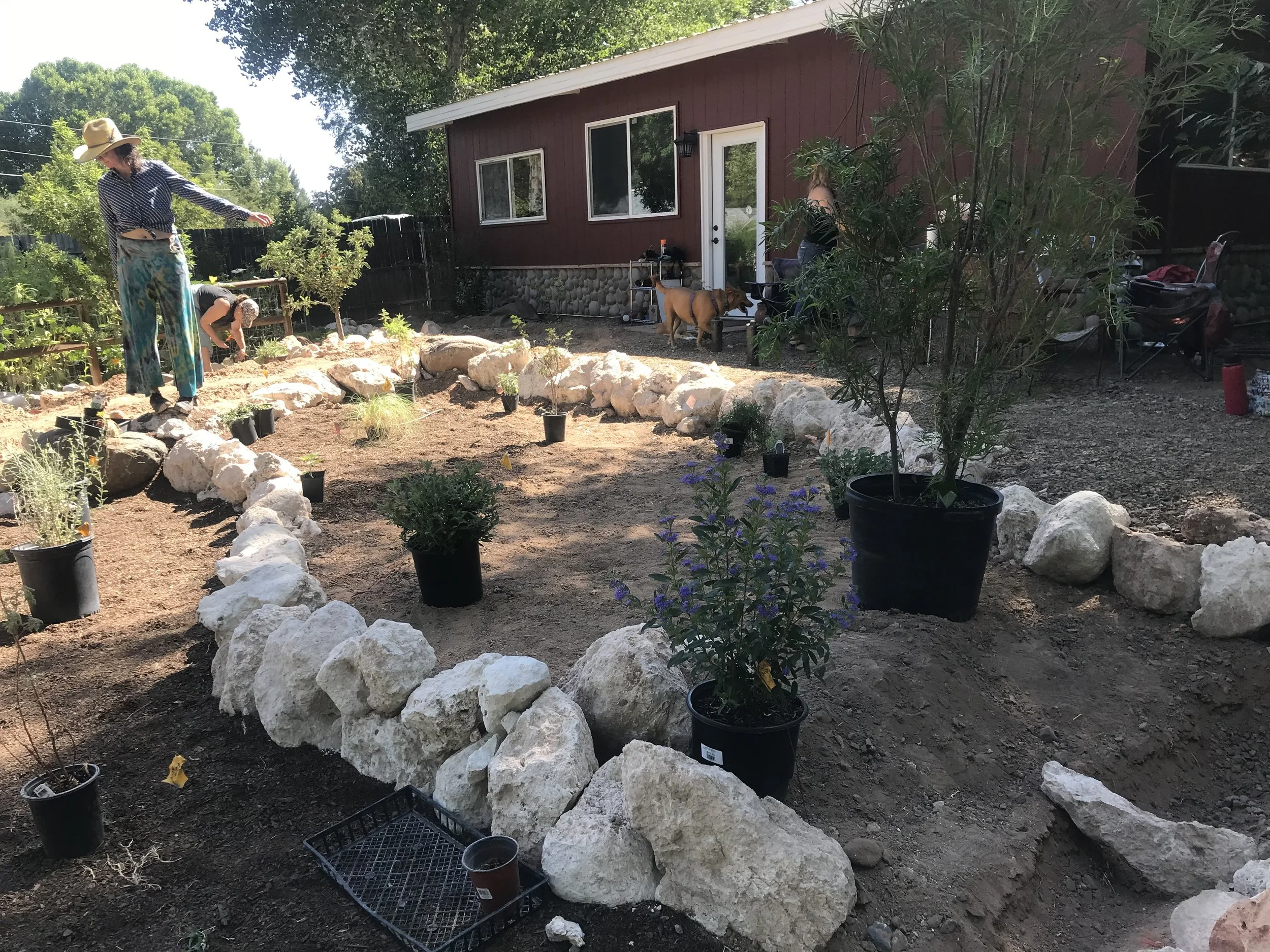Farm Sabbatical: Time to Rest and Reimagine Wild Heart Farm
by Kelly Watters with Dana Helfer
I have been a part of several farm CSAs in the past. CSAs, or Community Supported Agriculture, is a model that provides much needed capital and support to farmers before they even plant anything. It is a model for customers to support as it is like an investment and your returns are a share of the bounty of the farm, selected and tended by the farmers. Showing up every week to pick up my CSA share of impeccably grown produce was an honor and a small responsibility. Not only did I benefit from the insanely fresh produce, I also benefited from the relationships and the connections made at the CSA and market community. Farms thrive on human and other connections with living beings. Family farms that can support themselves are no longer possible in America like they once were. Trying to raise a healthy family on a farm is near impossible. Farms need a community.
That is why I was sad and broken-hearted when my friends Dana and Paul at Rattlebox Farm decided it was time for the land to go fallow, it was time to stop growing the annual vegetables that had filled my CSA share, so that all could rest - farmers and the land. Selfishly, I would miss my fresh food, my weekly connections with the farm at the market. I would especially miss the farm traditions created like the October harvest and processing of yellow meated Tonho O’odham watermelon. Fresh farm watermelon margaritas, dogs, farm kids drinking way too many natural sodas and dancing to the DJ in the dirt behind their house. In Tucson the coming of fall is like a refreshment in itself, a collective sigh from the release from the intense summer heat. Their farm was the perfect place to celebrate!
Growing native wildflower seeds is one of the transitions that came as a result of Rattlebox's Shmita year.
I learned from Dana about the importance of rest. Especially for the land. Leaving land fallow is a farming practice that leaves the land without any planting or sowing for one or more years. This practice allows the soil to recover and grow organic matter. In Jewish tradition, the holiday of Shabbat or the Sabbath comes every seven days. It is a day of rest and reflection and a cycle that starts the week anew. There is also a Sabbath year, every 7 years when, as Dana tells me, farms are left fallow, lands are not planted and are opened to the community and wildlife to harvest whatever grows wild. It is also a time of restructuring, debts are forgiven, and time is given to rest, recalibrate, and reinvigorate. It is called a Shmita year. According to Dana, Shmita in Hebrew means “release” and it is where the idea of a sabbatical comes. It is a biblical tradition that is making a comeback as farmers are looking to their traditions for support.
It is a practice Rattlebox Farm now uses and it has helped them and the farm immensely because it becomes more than the one year of rest. With rest comes renewal, growth, learning and commitments to new decisions that support the farmer and the land into the 6 years that come after the Shmita year. For Rattlebox Farm it has given them that. It allowed for new collaborations, more health and wellness for the farmers, inclusion of farming practices such as cover cropping that nourish the land, and better work/life balance that fits who the farmers are today and “who” the farm is today (aging and changing).
For us at Wild Heart Farm, the experience of Rattlebox Farm resonates with our bodies and souls. Over the past five years, the process of planning, selecting annual flowers, purchasing, planning and planting them so as to create a coherent symphony of seasonal flower bouquets has been quite a feat and a labor of love. The work and community has been and continues to be a gift in our lives. Now it is time for rest, recalibration and reinvigoration. It is time for Wild Heart Farm to do a Shmita year. It will be a sabbatical of sorts and a turn to natives and perennial plants for cut flowers..
Friends helping build the woodland garden — most of our spaces have been created with community joy, picnics and dancing. We want to have energy for this kind of communion.
We’ve had several seasons to reflect on this meticulous process of getting poems and bouquets to our CSA members and we have arrived at a decision to suspend the traditional CSA while we transition to perennials and natives. We know this will be disappointing to many of you and there will still be ways to support and stay connected. This rest and transition period will allow us to transform the garden into one that is based on perennial plants which in time will bring new CSA offerings.
Molly, a dear plant friend and farm community member, created a Go Farm Me to transform the annual field at Wild Heart Farm to natives and perennials. It is an homage to the Mother. You can read, support and share here. Quarterly newsletters will share our reflections and lessons from the Schmita or any offerings we will extend to the community.
Molly, who conceived the idea for the Healing Garden in Honor of Mothers, has been planting, dancing and dreaming at Wild Heart since day one.
Our dear blog or newsletter reader, you are part of our ecosystem, our community. Going forward whether through purchasing a share, supporting the Mother garden or coming to the farm to rest, we welcome you and your gifts. We need you, like you need us! May we all benefit from the rejuvenation of rest - let’s stay connected.


